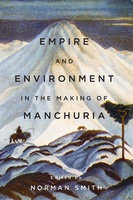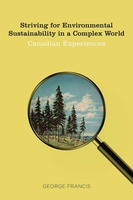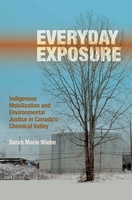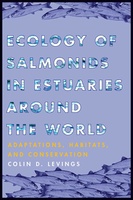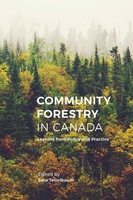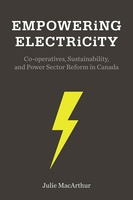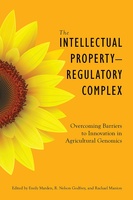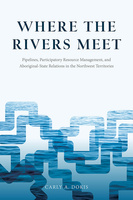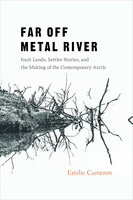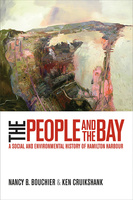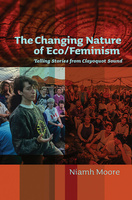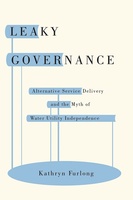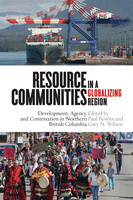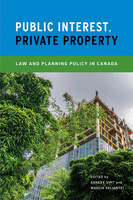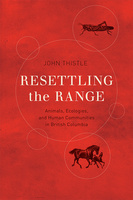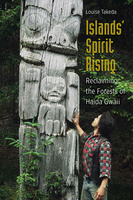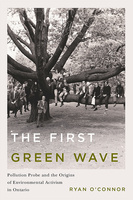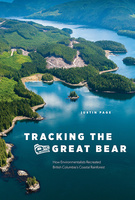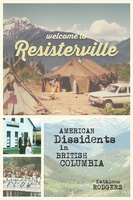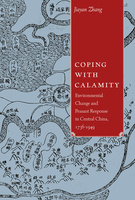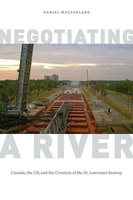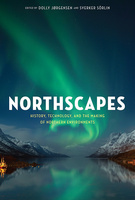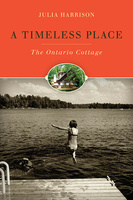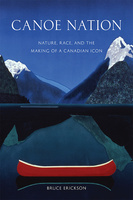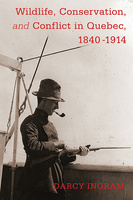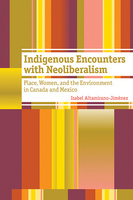Empire and Environment in the Making of Manchuria
This unique analysis of Manchuria’s environmental history provides an overview of the climatic and imperialist forces that have shaped an area of ongoing geopolitical importance.
Striving for Environmental Sustainability in a Complex World
Canadian Experiences
In the face of growing anxiety about the environmental sustainability of the world, George Francis, a leading authority in the field of sustainability studies, examines initiatives undertaken in Canada over the past twenty-five years to protect some of our unique environments.
Everyday Exposure
Indigenous Mobilization and Environmental Justice in Canada’s Chemical Valley
Everyday Exposure documents the adverse health effects experienced by Aamjiwnaang citizens in the heart of Canada’s Chemical Valley and argues for a transformative and experiential “sensing policy” approach that takes the voices and experiences of Indigenous citizens seriously.
Ecology of Salmonids in Estuaries around the World
Adaptations, Habitats, and Conservation
A comprehensive guide to understanding the crucial role estuaries play in the salmonid life cycle and what can be done to conserve – and recover – this important fish habitat.
Community Forestry in Canada
Lessons from Policy and Practice
The first comprehensive look at community forestry initiatives across Canada, this book provides a rich and detailed portrait of the sector from Newfoundland to British Columbia.
Empowering Electricity
Co-operatives, Sustainability, and Power Sector Reform in Canada
This revealing analysis of Canada’s electrical power co-operatives challenges our understanding of their history and shines a light on their potential within the nation’s electricity sector.
The Intellectual Property–Regulatory Complex
Overcoming Barriers to Innovation in Agricultural Genomics
This book offers a pathway forward for innovation in agricultural genomics by identifying and addressing the significant obstacles posed by conflicting intellectual property and biosafety regimes.
Where the Rivers Meet
Pipelines, Participatory Resource Management, and Aboriginal-State Relations in the Northwest Territories
An examination of Sahtu Dene participation in the assessment of the Mackenzie Gas pipeline and other resource extraction projects, this book provides an in-depth account of the workings and effects of participatory environmental assessment in the Canadian North and its implications for the legitimization of resource co-management.
Far Off Metal River
Inuit Lands, Settler Stories, and the Making of the Contemporary Arctic
Drawing on the story of the 1771 Bloody Falls massacre, human geographer Emilie Cameron explores the relationship between stories and colonialism, challenging readers to examine their perceptions of the contemporary Arctic and its peoples.
The People and the Bay
A Social and Environmental History of Hamilton Harbour
This engaging history brings to life the personalities and power struggles that shaped how Hamiltonians used their harbour and, in the process, invites readers to consider how moral and political choices being made about the natural world today will shape the cities of tomorrow.
The Changing Nature of Eco/Feminism
Telling Stories from Clayoquot Sound
In its careful account of eco/feminist activism in Clayoquot Sound in the early 1990s, The Changing Nature of Eco/Feminism confounds prevailing stories about eco/feminism, feminism, and Clayoquot itself.
Leaky Governance
Alternative Service Delivery and the Myth of Water Utility Independence
Municipalities face important water supply challenges. One response has been to render utilities independent from municipal government through alternative service delivery. Both water management and municipal governance must be strengthened to meet contemporary water supply needs.
A Town Called Asbestos
Environmental Contamination, Health, and Resilience in a Resource Community
In A Town Called Asbestos, a mining town’s proud and painful history is unearthed to reveal the challenges a small resource community faced in a globalized world.
Resource Communities in a Globalizing Region
Development, Agency, and Contestation in Northern British Columbia
This book explores how the peoples and communities of northern British Columbia are responding to global demand for local resources.
Public Interest, Private Property
Law and Planning Policy in Canada
Through selected case studies, this volume explores the complex interplay between the public interest and private property rights in Canadian urban-planning policy.
Cleaner, Greener, Healthier
A Prescription for Stronger Canadian Environmental Laws and Policies
David R. Boyd reveals striking weaknesses in Canadian environmental law, describes the damage these flaws are wreaking on human health, and identifies practical, proven, and affordable solutions to these problems.
Resettling the Range
Animals, Ecologies, and Human Communities in British Columbia
This unconventional history looks at the resettlement of interior British Columbia from the perspective of campaigns to exterminate grasshoppers and wild horses, creatures considered by some to be pests.
Islands' Spirit Rising
Reclaiming the Forests of Haida Gwaii
Set within the context of resource conflict and collaborative land-use planning on Haida Gwaii, this book examines how historic relations of domination and oppression can be transformed and more sustainable forms of land governance created.
The First Green Wave
Pollution Probe and the Origins of Environmental Activism in Ontario
The First Green Wave examines the origins and development of first wave environmental activism (1967-86) in Toronto, home to one of Canada’s earliest and most dynamic communities of environmentalists.
Tracking the Great Bear
How Environmentalists Recreated British Columbia’s Coastal Rainforest
A detailed account of the complex and contested process that resulted in the establishment of the Great Bear Rainforest in coastal British Columbia.
Welcome to Resisterville
American Dissidents in British Columbia
A compelling, highly readable study of American migration to the West Kootenays and of the counterculture values that created a vibrant society in the Canadian wilderness.
Coping with Calamity
Environmental Change and Peasant Response in Central China, 1736-1949
The first environmental and socioeconomic history of the Jianghan plain in central China, focusing on the peasants’ relationship with a volatile environment.
Negotiating a River
Canada, the US, and the Creation of the St. Lawrence Seaway
A revealing look at the planning and building of the St. Lawrence Seaway and Power Project -- a megaproject that had a profound impact on North American history.
Power from the North
Territory, Identity, and the Culture of Hydroelectricity in Quebec
This book explores how French Canada’s aspirations migrated north with natural resource development, creating a culture of hydroelectricity that continues to shape territorial planning and relations with Aboriginal peoples in the province.
Northscapes
History, Technology, and the Making of Northern Environments
Northscapes examines concepts of North and the way in which different northern environments are shaped by the intersection of technology and human societies.
Aluminum Ore
The Political Economy of the Global Bauxite Industry
An exploration of one little-known mineral, and the social, political, and economic forces that shaped both its history and the twentieth century.
A Timeless Place
The Ontario Cottage
An exploration of the personal, social, and cultural meanings of the iconic Canadian cottage.
Canoe Nation
Nature, Race, and the Making of a Canadian Icon
An exploration of the canoe and its role in Canadian culture, nature, and colonial past.
Wildlife, Conservation, and Conflict in Quebec, 1840-1914
A revealing look at the origins of modern wildlife conservation in Quebec.
Indigenous Encounters with Neoliberalism
Place, Women, and the Environment in Canada and Mexico
A cross-comparison of gender and indigeneity in the neoliberal contexts of Canada and Mexico.

